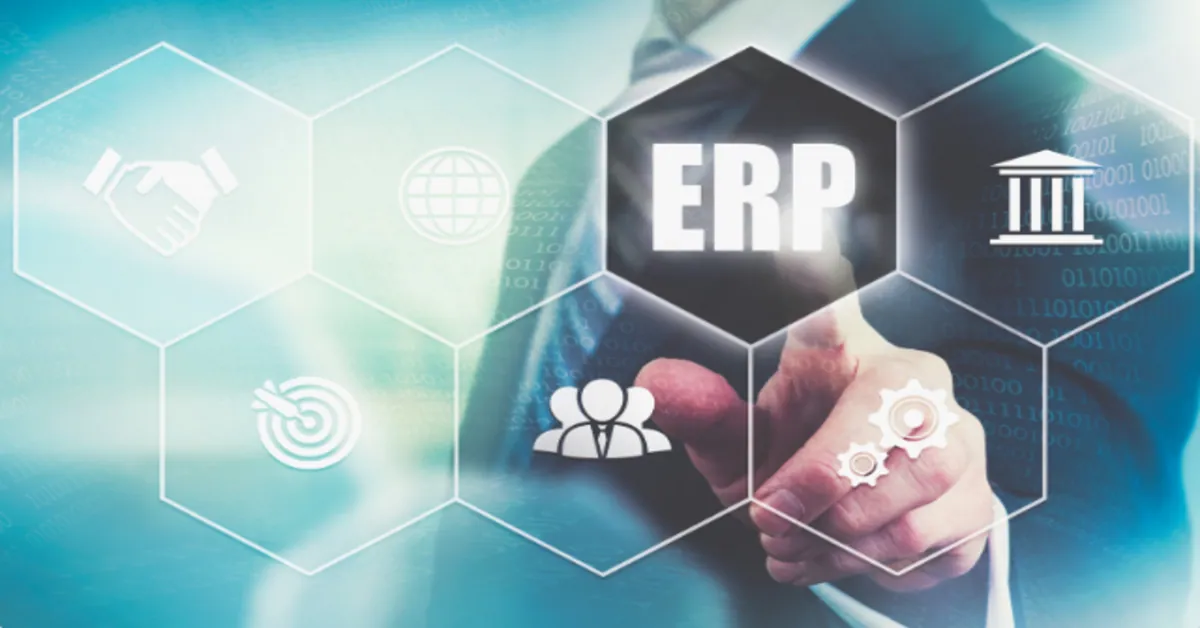Connect team of IT experts offer expertise on how to make challenging business transformation smooth and successful.
Tackling the pace of digital transformation requires organizations to make critical IT decisions as digital transformation continues to evolve across industries. ERP system is a great way to integrate existing data between groups and departments and integrate business operational data from the entire organization into a single window.
Using an ERP system is a daunting task and requires great effort and timely decisions in the right way. ERP programs make business processes smarter, improve departmental collaboration and enhance business performance, and empower organizations to reap better benefits. If you want to drive the best results in your ERP, it is important that you have strategies in place to overcome the challenges between unrealistic timeline, poor communication, and mismanagement. Here are some tips for choosing | selecting and using best ERP system:
- Identify Your Business Goals
- Define Your Business Scope
- Research the Best ERP System
- Select the Experienced ERP System Expert
- Build Roadmap for ERP Implementation Plan
- Design Communication Plan
- Test the Selected ERP System
- Provide Trainings to Users
- Make Sure After-Implementation Support
- Drive Results
Identify Your Business Goals
The question is – what do you want your business to look like, once you have successfully applied the solution? There are many ways an ERP system can help your business. To achieve the benefits, you need to focus on specific target goals. Do you want to improve collaboration? Does integrating business into all areas and departments meet your expectations? Or do you want to reduce operating costs?
Define Your Business Scope
Today’s ERPs offer a wealth of skills, but that doesn’t mean you need to embrace them all. The ladder to every successful ERP implementation is a clear definition of scope and requirements. Before you embark ERP system implementation, you need to first make requirement list for a comprehensive needs document that describes the scope – based on your needs, needs, budget, and timeline. Prioritize each requirement; start by considering the performance that should be available and if time and budget.
Research the Best ERP System
Although many of them are feature-rich, not all systems are perfect for you. Understanding the needs of your business and choosing an ERP system that best suits those needs is what will pave the way for success. Look for a modern and innovative solution that provides the skills needed in today’s digital age. Evaluate systems based on their capabilities, setup and ease of use and cost.
Select the Experienced ERP System Expert
Once you have chosen a plan that is right for your business, it is time to choose an ERP vendor who can effectively implement the ERP solution. An experienced ERP EXPERT can bring the years of experience and expertise needed for greater and more complex implementation process. Connect ERP is experienced ERP vendor with relevant industry knowledge; uses a time-tested implementation model, prides itself on a strong resource base and can offer the right advice and the right diligence – whenever needed.
Build Roadmap for ERP Implementation Plan
Having a flexible and robust ERP implementation roadmap is essential to doing tasks as planned and keeping distractions and deviations minimal. A good ERP implementation plan is a great way to build a timeline, set up a milestone / submit and evaluate and track the progress of your project. Additionally, a project implementation plan can give you a summary of your initial tasks and help you overcome challenges as they come.
Design Communication Plan
No ERP implementation can succeed without a clear communication plan: from defining the need for an ERP system to the changes users may need to make in their daily lives, from the benefits the system will bring to the roles and responsibilities of those involved. It is the only clear communication system where you can deal with anxiety and resistance, ensure support, and increase adoption.
Test the Selected ERP System
ERP system requires a series of thorough testing activities to identify and correct issues in time. Success of an ERP project doesn’t end at deployment; Since a lot can go wrong with any ERP implementation. It is important you build the right test suites, use the right testing tools, and test the solution – from end-to-end.
The ERP system requires a series of careful monitoring tasks to identify and fix problems in a timely manner. The success of an ERP project is not limited to implementation; As much can go well with any ERP implementation. It is important that you build the right test rooms, use the right test tools, and test the solution – from end to end.
Provide Trainings to Users
This means you have to train the users to use the ERP system and ensure they leverage the features and capabilities to full potential. How well your ERP is received depends a lot on how comfortable your users are in using the ERP system. Provide intensive classroom as well as hands-on training to every user along with detailed documentation and make sure to be open and available to queries.
Make Sure After-Implementation Support
After implementation support to the ERP system is also important, to ensure that the ERP system works as intended. Such monitoring can provide details about how the system works, how it interacts with other systems within and outside the organization, and how users use the system.
Drive Results
Although the ERP system offers a range of benefits, you can only use them if you choose the right system and use it in a way that drives high results. An ERP system to drive digital transformation in any organization is a great way to start a journey towards becoming a digital driven organization. Making the right effort, understanding the terms from the application, and clearly defining your scope are important factors.
Implementing an enterprise resource planning (ERP) software system in Pakistan is an expensive thing, not just for licensing and maintenance, but for dedicated resources and time. But more often than not, organizations, dazzled by vendor promises and uproar, ‘Install our ERP software and your production business will run smoothly and profitably!’ they fail to come up with a viable long-term (or even short-term) roadmap.
To help organizations increase the chances of successful ERP deployments, with the help of a wide expertise in the field of ERP, Connect Solutions can transform your business into modern cutting-edge industry and change the style of organization management.
Contact us for free Demo.





